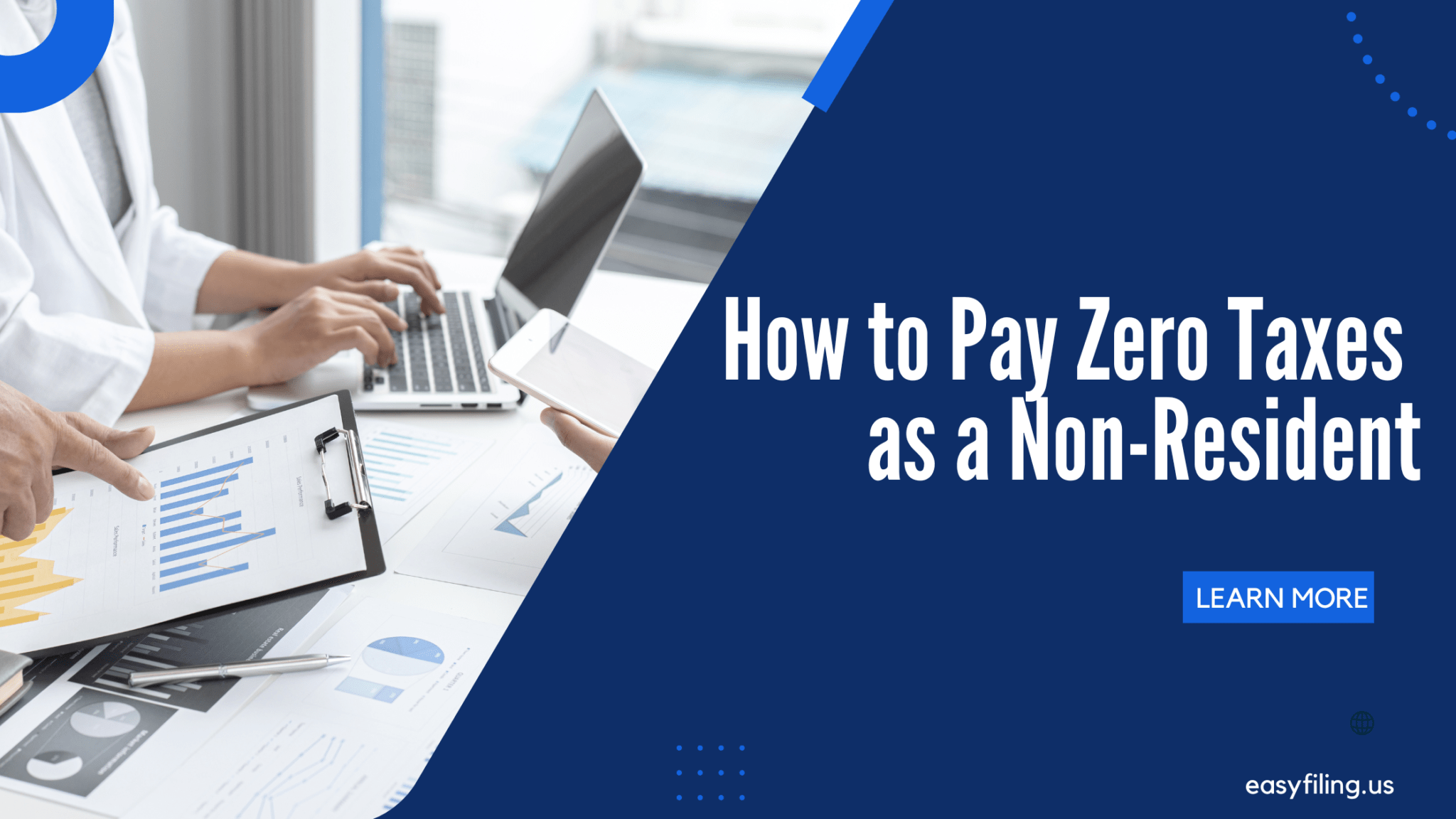For foreign entrepreneurs or investors, starting an LLC in the United States is an excellent opportunity to expand their business reach. However, understanding the tax implications of non-resident LLCs in the US can be confusing. As such, this blog post will cover taxation for non-resident LLCs in the United States, addressing key concerns, and answering some of the most common questions.
1) What is a Non-Resident LLC?:
A non-resident LLC is a limited liability company that is registered in the US but owned and managed by foreign persons. According to the US tax code, a non-resident LLC is considered a disregarded entity and is not taxed at the entity level but instead pays taxes at the individual level. This means that all profits and losses are passed through to the company owner, who is responsible for paying taxes on them.
2) Tax Filing Requirements:
For non-resident LLCs, taxation in the US is based on the source of income. Non-resident LLCs only pay tax on the income earned from US sources. Additionally, non-resident LLC owners are required to file a US tax return if they earn any income from US sources. Any income that is not reported to the IRS can be subject to significant penalties.
3) The Importance of Choosing the Right Tax Classification:
Non-resident LLCs have a choice of how they want to be taxed in the US. They can choose to be taxed as a corporation or elect to be taxed as a partnership. If a non-resident LLC chooses to be taxed as a partnership, it can select the default tax classification of pass-through taxation or opt to be taxed as a corporation. The right tax classification decision is critical for non-resident LLCs because it directly impacts the company’s tax obligations and how much the owners pay in taxes.
4) Reducing Taxes for Non-Resident LLCs:
Non-resident LLCs owners can reduce their tax liability by taking tax deductions that are allowed by the IRS. For example, non-resident LLCs can reduce their taxable income by deducting expenses, such as business-related travel, rent, office supplies, and other expenses related to the company’s operations. Additionally, non-resident LLC owners can take advantage of tax treaties that exist between the US and their home country, which can further reduce their tax liability.
5) Seek Professional Help:
Taxation for non-resident LLCs in the United States can be complex and confusing. Therefore, it is essential to seek advice from tax professionals, including tax lawyers and accountants, who understand US tax codes concerning non-resident LLCs. These professionals can guide you in making the right tax classification decisions, help you adhere to the US tax compliance rules, and identify opportunities to reduce tax liability.
Conclusion:
Non-resident LLC taxation in the United States can be a complicated affair. However, companies can reduce their taxes by selecting the correct tax classification, filing taxes in the United States as required, and leveraging tax treaties between the United States and their home country. It is vital to seek advice from tax professionals who can help navigate the complex and ever-changing US tax code to minimize tax liability and help companies achieve success.














